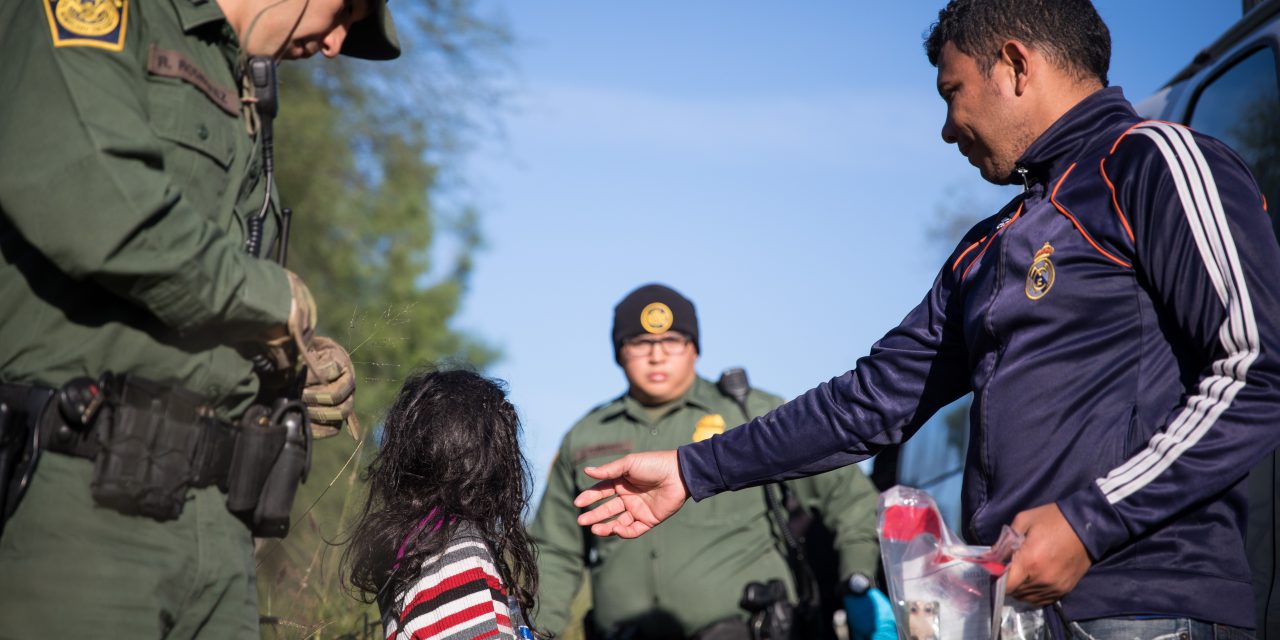The Trump administration announced last week that it had signed an “Asylum Cooperative Agreement” with Honduras, following two similar agreements signed with El Salvador and Guatemala. If any of these agreements go into effect, the United States could rapidly deport asylum seekers to a third country, without ever permitting them to apply for protections in the United States.
If fully implemented, the U.S. southern border would become an asylum-free zone.
Buried in the Immigration and Nationality Act is a single, little-utilized provision that permits the United States to deny asylum to someone who can be sent to a “Safe Third Country.” This provision of the law allows the U.S. government to remove an asylum seeker to another country with which United States has entered into an agreement. This third country would then determine whether to grant protection to the asylum seeker.
By law, in order to remove someone under a Safe Third Country agreement, the U.S. government must first determine that the person being sent back would not be persecuted in that third country, and that the third country can provide a “full and fair procedure” to seek asylum.
Importantly, the countries the Trump administration has signed deals with have virtually no capacity to hear asylum claims.
Guatemala has just 8 employees in the agency responsible for hearing asylum applications. El Salvador has just a single employee processing asylum applications right now, and in many years the agency has received zero applications.
In addition, each country remains plagued by the violence and persecution that are the reasons many people have fled to the United States in the first place. El Salvador has the world’s highest intentional homicide rate. Honduras is fourth, while Guatemala is 15th. But despite hundreds of thousands of people leaving to seek asylum in the United States, under a Safe Third Country deal, people would be forced to apply for asylum in neighboring countries that are just as unsafe.
In order for these deals to go into effect, the national legislatures of Guatemala, El Salvador, and Honduras each need to ratify the deals. For the time being, it remains unclear whether that will happen. The United States might also need to pass new regulations to implement the deals. Those regulations are reportedly already being drafted.
For decades, the only Safe Third Country deal that existed was between the United States and Canada. The U.S.-Canada agreement is a narrow agreement that only applies to individuals who have transited through the United States before entering Canada at an official port of entry, or vice versa.
The U.S.-Canada Safe Third Country agreement also provides significant exceptions for asylum seekers. One of the biggest exceptions is for people who have family in the country where they’re seeking asylum.
An asylum seeker who passed through Canada before arriving in the United States would still be eligible for asylum if they have a relative living in the United States, so long as the relative has legal status or is in the process of applying for asylum.
By contrast, the new agreements signed with Honduras, Guatemala, and El Salvador contain none of these exceptions. Although the text of the Honduran deal has yet to be released, the Guatemalan and Salvadoran deals do not contain any requirement that someone pass through those countries in order to be sent there. This means that a Guatemalan who passes through Mexico could be sent back to Honduras, or a Cameroonian who passes through Honduras could be sent to El Salvador.
As written, it’s also possible these deals could be applied to Mexicans, who currently remain the only group unaffected by the Asylum Ban and the Remain in Mexico policies.
The deals also contain no exceptions for asylum seekers who have family in the United States. This means that should these deals go into effect, even an asylum seeker who has a U.S. citizen- parent in the United States could be entirely denied the opportunity to seek protection in the United States.
The consequences of these deals would be severe. The Trump administration would effectively end all humanitarian protections for individuals arriving at the southern border, abandoning America’s long tradition of welcoming those who seek protection from persecution. Although a future administration could overturn the deals, America would suffer greatly in the meantime.
FILED UNDER: Honduras


